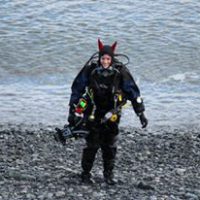This week’s Video of the Week is a featurette from The Atlantic, who interviewed marine biologist Dr. David Vaughan about his breakthrough in coral restoration – and his hope of revitalising the world’s reefs.
An amazing, accidental breakthrough
Ten years ago, Dr. Vaughan was preparing to retire from his role as Executive Director at Mote Marine Laboratory, a marine science research center based in Florida, United States. One of the facility’s key research programs, coral restoration, developed hard coral nurseries for reef restoration research and ultimately planting into the Florida Reef Tract.
At that time, Dr. Vaughan felt disappointed with the rate of growth of coral, realising just how long it would take to repair the damage he’d already seen in his lifetime to coral reefs. During the process of moving hard corals after concluding the project was not worth pursuing, he made an incredible yet entirely accidental discovery that would change everything.
Breaking the coral down into microfragments causes the coral to heal itself at an accelerated rate. It grows 25-40 times faster than previously recorded.
A new future for coral reefs
This amazing advancement in coral reef restoration led to Dr. Vaughan putting his retirement plans on hold a decade ago. Today, following consistently impressive results, it may well be the future of coral reef restoration. Mote Marine Laboratory have already produced thousands of coral colonies for transplanting back to the ocean reefs, and with the accelerated growth rate, Dr. Vaughan is optimistic that they will reach over a million in his lifetime.
At a time when the world’s coral reefs are under threat from elevated ocean temperatures and acidity, and with recent reports about coral bleaching across the Great Barrier Reef, Dr. Vaughan’s research, and the potential to achieve the same growth as a 100-year coral in less than 5 years, could be the glimmer of hope that will help to save the world’s coral reefs – and the creatures that call them home.
Learn more about coral conservation
For more information on the Coral Restoration Project, including research information and volunteer opportunities, visit the Mote Marine Laboratory website.
To learn more about coral reef and conservation, ask your local PADI Dive Center or Resort about the Project AWARE Coral Reef Conservation course.
